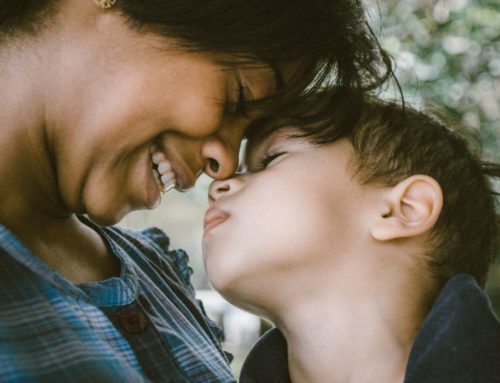
“Ungrateful, selfish brats” were definitely not what most of us envisaged our sweet little babies to grow up as. Yet, many of us are often appalled to find – when we are really honest with ourselves – that our youngsters are in fact, well… ungrateful, selfish brats.
This becomes especially evident as adolescence approaches – a life stage already notorious for egocentrism and lately even more intensified by modern culture. Our teens live in a self-absorbed world where materialism is the ideology of the day, where an event did not fully take place if there is no public selfie and a certain number of “likes” to authenticate it and where almost everything one “needs” is likely to be a click away. Then we seal the narcissistic deal even further by insisting to our children that they are special (and they are – but no more special than the rest!) which sends the message that they somehow “deserve” the best in life. And boom – you have a perfect unappreciative egomaniac! Now how did that happen…?
So how do we deal with this syndrome of self-involvement? Here are a couple of thoughts on training teenagers to give back to society with a spirit of gratitude. And remember: be proactive when they are young, before the disease is diagnosed!
Gratitude does not grow on guilt or gauging
Many parents try to force thankfulness by means of guilt-tripping their children. (You know what I mean: “Stop complaining about the food – there are children going hungry a few kilometres away!”)
These “friendly reminders” of others who are worse off than us are seldom, if ever, helpful. In most cases they will merely produce irritated eye-rolling – especially where teenagers are concerned. And even if you actually manage to make them feel bad about their good fortunes, it is still counter-productive, as guilt only makes us feel miserable – which does not happen to be the equivalent of grateful.
We should never teach thankfulness by comparing to others, because what happens when you measure lower – which is bound to happen some of the time? Rather kit your kids to find something to appreciate in all circumstances.
Your own attitude determines your child’s gratitude
As with almost any other positive attribute you would like to see in your child – gratitude is learned through modelling! (Yes, you guessed it – by you!) Because we all know by now that ‘’morals are caught, not taught.’’
Actively live out gratefulness and create a platform for it in your home so that it can become a way of life to your children. Always thank people (which definitely include your kids). Regularly point out things you appreciate – even if they seem insignificant like a hot breakfast or a great parking spot. Make a ritual of sharing what you are grateful for with one another around the dinner table. Serve others without complaining. Stop complaining in general. Counteract an atmosphere of negativity by focusing on your family’s blessings. Say prayers of thanksgiving together.
Gratitude should be the lens through which your children view the world, not a positive feeling (like happiness) that comes and goes as circumstances change. They can only achieve this if they had a solid example to follow from a young age.
Overindulged is under-appreciative
A child who genuinely lacks in life and another who has in abundance are both at risk for selfishness – the former because of anxiety about self-preservation and the latter due to entitlement. Ensure your child is well provided for, but do not flood her with belongings and expensive experiences (this is often the hard part as it seems counter-intuitive). Remember, you are allowed to say “no” for reasons other than, “We cannot afford it”. Make a habit of giving away one toy for each new one she gets.
Spoiling children is a mild form of child abuse, as you deprive them of developing certain valuable virtues – like gratefulness and other-centeredness – that they require to become agreeable adults.
Egocentrism is equalised through exposure
If your child is comfortably and ignorantly leading his leisurely life (most probably with an electronic device glued to his hand), how should he know to be grateful and what options does he have to be of service? Instead of telling him, “You should be grateful for X or Y,” rather expose him to the less-than-perfect world out there and let him figure it out for himself.
Watch movies and read stories or news articles together about people in different circumstances and then discuss it. Be more present in less affluent settings – go eat something at a joint in a poverty-stricken area and encourage diverse friendships, for example. Join outreaches as a family (but only if a superiority mindset is averted – they should never believe that they are “fixing” others who are “below” them!).
Coaching is the key!
Human beings’ natural inclination is towards selfishness – almost like we are “naturally illiterate” if educational intervention does not take place. And just like a child will rarely learn to read and write when left to their own devices, gratitude should be taught and modelled – like any other skill.
How can Munchkins help?
Munchkins is a powerful resource to assist you with every step of the parenting journey. We believe in empowering parents with the right tools to transform family dynamics and offer a range of practical solutions for your family. This includes hosting parenting talks on various topics (including Preparing for Adolescence), conducting home visits, healthy lunchbox sessions and online parenting courses with simple and easy to apply advice for all ages.
Find out more about us on our website at or follow us on our Facebook and Twitter social pages for some great updates, tips and parenting advice.





